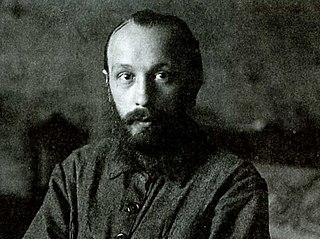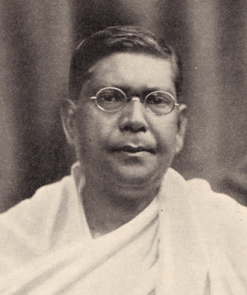A Quote by Vincent de Paul
Foresight is good when it is subject to the latter, but it becomes excessive when we are in a hurry to avoid something we fear. We rely more on our own efforts than on those of his Providence, and we think we are doing a great deal by anticipating His orders by our own disorder, which causes us to rely on human prudence rather than on his Word.
Related Quotes
The mystery of God's providence is a most sublime consideration. It is easy to let our reason run away with itself. It is at a loss when it attempts to search into the eternal decrees of election or the entangled mazes and labyrinths in which the divine providence walks. This knowledge is too wonderful for us. Man can be very confident that God exercises the most accurate providence over him and his affairs. Nothing comes to pass without our heavenly Father. No evil comes to pass without his permissive providence, and no good without his ordaining providence to his own ends.
He who remembers the evils he has undergone, and those that have threatened him, and the slight causes that have changed him from one state to another, prepares himself in that way for future changes and for recognizing his condition. The life of Caesar has no more to show us than our own; an emperor's or an ordinary man's, it is still a life subject to all human accidents.
In a world in which we are exposed to more information, more options, more philosophies, more perspectives than ever before, in which we must choose the values by which we will live (rather than unquestioningly follow some tradition for no better reason than that our own parents did), we need to be willing to stand on our own judgment and trust our own intelligence-to look at the world through our own eyes-to chart our course and think through how to achieve the future we want, to commit ourselves to continuous questioning and learning-to be, in a word, self-responsible.
Notice carefully every word here. It is not our prayer which draws Jesus into our hearts. Nor is it our prayer which moves Jesus to come in to us. All He needs is access. He enters in of His own accord, because He desires to come in. To pray is nothing more involved than to let Jesus into our needs, and permitting Him to exercise His own power in dealing with them. And that requires no strength. It is only a question of our wills. Will we give Jesus access to our needs?.
Salvation is not some felicitous state to which we can lift ourselves by our own bootstraps after the contemplation of sufficiently good examples. It is an utterly new creation into which we are brought by our death in Jesus' death and our resurrection in his. It comes not out of our own best efforts, however well-inspired or successfully pursued, but out of the shipwreck of all human efforts whatsoever.
It is certain that success naturally confirms in us a favourable opinion of our own abilities. Scarce any man is willing to allot to accident, friendship, and a thousand causes, which concur in every event without human contrivance or interposition, the part which they may justly claim in his advancement. We rate ourselves by our fortune rather than our virtues, and exorbitant claims are quickly produced by imaginary merit.
It becomes 'one's own' only when the speaker populates it with his own intentions, his own accent, when he appropriates the word, adapting it to his own semantic and expressive intention. Prior to this moment of appropriation, the word does not exist in a neutral and impersonal language (it is not, after all, out of a dictionary that the speaker gets his words!), but rather it exists in other people's mouths, in other people's contexts, serving other people's intentions: it is from there that one must take the word, and make it one's own
[About Swami Vivekanada:] I am not saying that the message of the Swami was the final word in our nationalism... But it was tremendous - something with an undying glory of its own. If you read his books, if you read his lectures, you are struck at once with his love of humanity, his patriotism, not abstract patriotism which came to us from Europe but of different nature altogether a more living thing, something which we feel within ourselves when we read his writings.
...Those laws are within the grasp of the human mind. God wanted us to recognize them by creating us after his own image so that we could share in his own thoughts... and if piety allow us to say so, our understanding is in this respect of the same kind as the divine, at least as far as we are able to grasp something of it in our mortal life.
The greater the scientist, the more he is impressed with his ignorance of reality, and the more he realizes that his laws and labels, descriptions and definitions, are the products of his own thought. They help him to use the world for purposes of his own devising rather than understand and explain it.




































